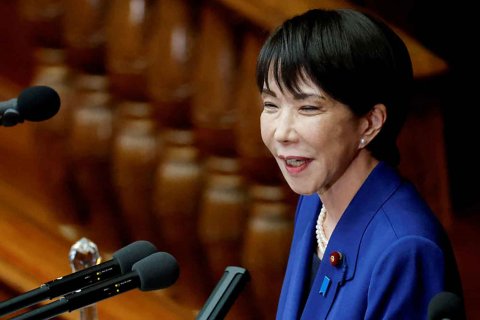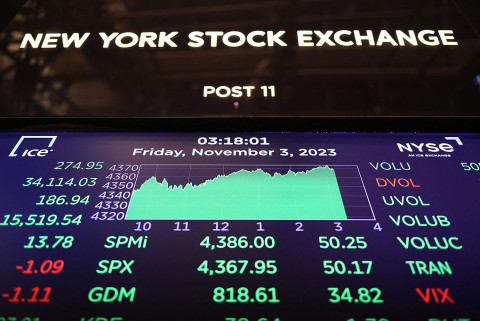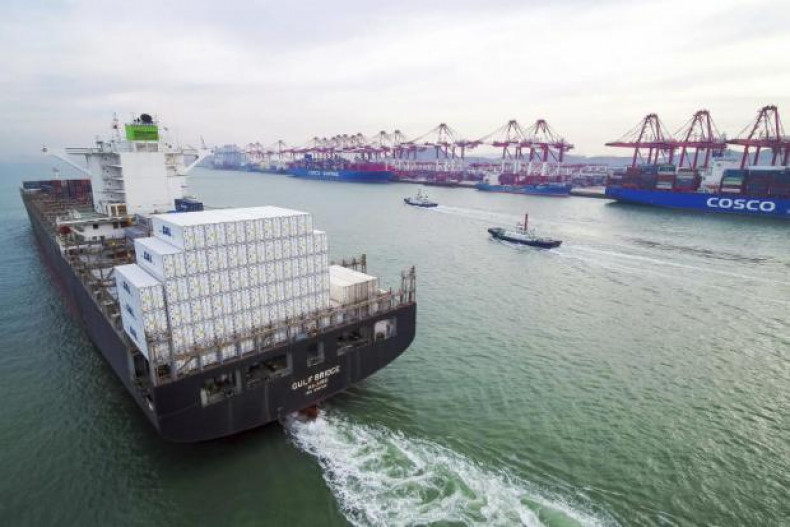Showing 1 - 10 of 10
Is Takaichi Sanae the 'Iron Lady' of Japan?
Oped, Koichi Hamada, Published on 10/11/2025
» For the first time in its history, Japan's parliament has selected a woman, Takaichi Sanae of the Liberal Democratic Party, to be prime minister. In this sense, Ms Takaichi has already followed in the footsteps of her political idol, Margaret Thatcher -- the UK's first female PM. But whether she is remembered as Japan's own "Iron Lady" will depend on her ability to manage three key challenges: inflation, low female labour-force participation and a fraught geopolitical environment.
How nations can counter Trump's trade trickery
Oped, Koichi Hamada, Published on 10/05/2025
» Much has been written about US President Donald Trump's disastrous "reciprocal" tariffs, which, despite having remained in effect for less than 24 hours, roiled the stock market, drove up Treasury yields, and caused the dollar to depreciate. In fact, the tariffs that have so badly undermined markets' faith in the US were never reciprocal at all: they were entirely unilateral actions betraying a fundamental misunderstanding of economics.
Monetary policy really needs to tighten in Japan
Oped, Koichi Hamada, Published on 12/11/2024
» Last month, returning to Japan for the first time since the Covid-19 pandemic, I was struck by how significantly prices had increased. In February 2020, a simple lunch in downtown Tokyo cost about JP¥1,000, then the equivalent of about $10 (324 baht); today, it costs more like JP¥2,000. To some extent, this mirrors the experience in the US, where, even as inflation moderates, prices remain well above their pre-pandemic levels. The difference is that Japan has also experienced a sharp currency depreciation, which benefits foreign visitors: that JP¥2,000 bill translated to just $13.
The lasting legacy of Abenomics
Oped, Koichi Hamada, Published on 31/05/2024
» After the 1985 Plaza Accord pushed the yen's exchange rate sharply upwards, Japan's economy suffered a severe slowdown that proved mightily difficult to reverse. In fact, the only prime minister to oversee a period of consistent growth and high employment in the past three decades was Shinzo Abe, during his second term, which began in 2012.
Why don't Japanese give to charity?
Oped, Koichi Hamada, Published on 06/04/2024
» On Jan 1, as Japan celebrated the new year, a 7.5-magnitude earthquake struck the Noto Peninsula, causing buildings to crumble, forcing mass evacuations, and leading to more than 200 deaths. But in the wake of the tragedy, something beautiful happened: an outpouring of support by philanthropic organisations and individuals, including support from beyond Japan's borders. More than 140,000 people donated US$5 million (183.7 million baht) through the Nippon Foundation alone.
Should fiscal policy resemble private budgets?
News, Koichi Hamada, Published on 06/11/2023
» Every few months this year, the US government appears on the verge of shutting down. It happened in May, when congressional Republicans initially refused to raise the debt ceiling, and in September, when Congress managed to avert a last-minute shutdown by passing a stopgap bill to keep the federal government open until Nov 17.
Japan's giant of central banking
Oped, Koichi Hamada, Published on 16/05/2023
» Haruhiko Kuroda's ten-year tenure at the helm of the Bank of Japan was the most consequential in the central bank's history. Following his departure last month, it is worth reflecting on his record.
When will inflation stop happening?
Oped, Koichi Hamada, Published on 10/05/2022
» Until a few years ago, major economies were struggling to achieve even mild inflation, with policymakers in the United States, United Kingdom and eurozone struggling to meet their targets of 2% annual price growth. But with the arrival and persistence of Covid-19, the world changed dramatically. Two years later, everyone is worried about soaring inflation and how it can be contained.
The fiscal fight against Covid-19
News, Koichi Hamada, Published on 05/03/2020
» As the new Covid-19 coronavirus continues to spread rapidly outside China, medical professionals and policymakers around the world are fighting to contain the outbreak. But what role can or should governments play in this situation -- or, for that matter, when natural disasters strike?
Who benefits from Trump's trade war?
Asia focus, Koichi Hamada, Published on 14/01/2019
» In 1950, the Canadian-born Princeton University economist Jacob Viner explained a customs union produces a "trade creation" effect, as lower tariffs and non-tariff barriers spur increased flows of goods among member countries.







